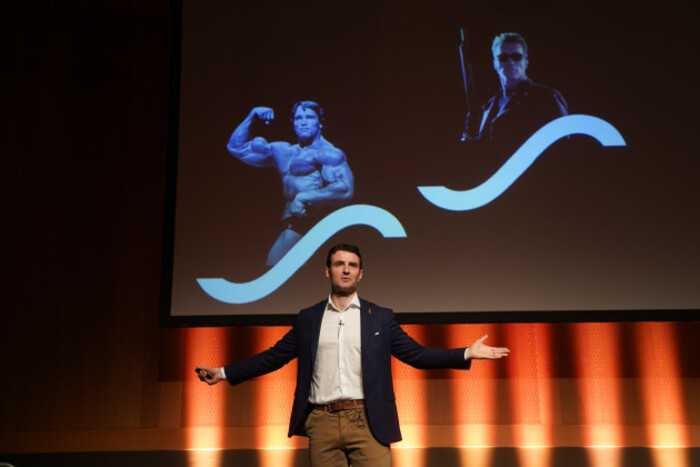Work-it: ‘A manager manages, a leader leads’
How to manage anxiety in the workplace amid the spread of coronavirus outbreak.
FOR AIDAN MCCULLEN, in times of crises, leaders stand up and are present for their people.
“Most of us throughout our lives carry out normal tasks 90-95% of the time and then it’s in these moments of high tension and high risk that we are really measured,” the former Leinster and Ireland sevens rugby union player told Fora.
McCullen is the founder of the Innovation Show podcast, which interviews leaders, and as a change consultant he works with organisations that may be undergoing transitions such as a merger or acquisition.
The constant stream of updates on Covid-19 has increased anxiety for a lot of people. So how do employers manage that stress and worry in the workplace?
For McCullen, people are the priority in any workplace right now and those in management positions need to check in to make sure their employees are okay.
“Check in with them to see how they are. Let them know that this is unprecedented and unexpected.”
“Ignore the business and ask staff how they are. See how their family is doing, ask them if they have any vulnerable relatives they are worried about,” he said. “A manager manages things, a leader leads people.”
To be able to take control and lead in a moment like this, McCullen said it’s important for leaders to “wear their own mask first” and make sure they are okay.
“A leader isn’t going to be any use to their employees right now if they are struggling and holding all the worry in,” he said.
Support networks are important at this time. “Those in charge need to find a network, a group they can talk to or another chief executive they can call on,” he explained.
Dealing with harsh truths
McCullen said that not everyone will be able to focus on their role if they are worried about the impact of the virus and how it may impact their job. There needs to be open and clear communication on how the virus will impact people’s roles from the outset.
“Businesses need to say, ‘we have X amount of money in the coffers and are going to try our hardest to keep people in a role, but some may not make it’,” he explained.
“It’s in everyone’s mind so that needs to be addressed really quickly. From my experience, when a new leader comes into power and doesn’t make an address during organisational change, they lose people really quickly,” he said.
“It needs to be done if not by the end of this week then early next week in businesses,” he said.
 Aidan McCullen
Aidan McCullen
New world order
With a lot of people adjusting to remote working, McCullen said it will take a while for employees to “settle into the new world order” of things. “Working from home is going to take some time to adapt to and adjust to.”
He said it is important that people feel “connected to a central cause” at this time.
“This idea of connection becomes unbelievably important because people will rally around a common purpose more than ever before (during a crisis) but you need to reach them with that message,” he said.
Once the purpose is established or made clear, McCullen said leaders need to stay in contact with their people – whether that’s through webinars or just picking up the phone for a call.
Adam Jensen, a counselling psychologist, also advised that employers check in with their employees periodically.
“If that is not possible, send out messages to employees with updates and reassurances that they are available to contact if anything comes up,” he said.
He highlighted there are tools available for employees to use, with LogMeIn licensing free remote desktop software to those in the healthcare professions during the outbreak.
Being present
He said people should limit their time on social media during this time. “I would encourage people to take breaks from doing that… people can get obsessed with scrolling social media updates and it can raise your stress level.”
Breathing techniques are important for people to use when feeling stressed. “Breathe deeply into your abdomen. You want to see your belly pop out as you breathe in for five seconds and out for five.”
With events developing around the world, he said people tend to extend themselves out of their personal space.
For this, he said ‘grounding’ techniques work well to bring people back into the present. “Put your feet on the ground and feel the floor beneath you. It sounds simple but it reminds people to come back to where they are.”
Get our Daily Briefing with the morning’s most important headlines for innovative Irish businesses.






